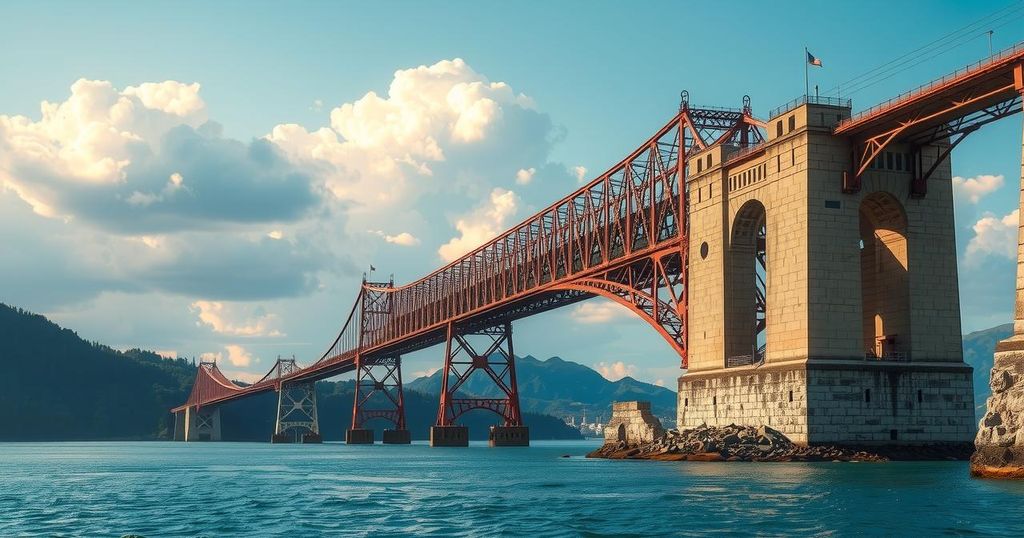President Felix Tshisekedi of the DRC vows a strong response against M23 rebels who have taken control of Goma. His televised address rejects any form of humiliation, amidst accusations of Rwandan support for the rebels. Analysts suggest outcomes may either lead to negotiations or intensified military conflict, as deaths and injuries mount amid ongoing hostilities.
The President of the Democratic Republic of Congo, Felix Tshisekedi, has affirmed a decisive response to the M23 rebel coalition, which has recently advanced and taken control of Goma, a key city in the mineral-rich eastern region of the country. Addressing the nation on television, Tshisekedi emphasized that the DRC will not accept humiliation or defeat amidst calls for negotiations from regional leaders. Reports indicate that the rebels have made significant territorial gains, prompting local troops to surrender.
The DRC government has accused Rwanda of providing support to the rebels, who are linked to the CNDP, a group that evolved from the Hutu militias involved in the Rwandan genocide in 1994. Despite the accusations, Rwanda has countered by criticizing the DRC for its dealings with certain militia groups. Tshisekedi did not attend recent discussions held by East African leaders aimed at resolving the mounting crisis, where they recommended dialogue with the M23 and other disgruntled armed factions.
Casualties continue to mount as fighting persists in Goma, with reports of deaths among foreign peacekeepers and injuries to numerous civilians. M23’s control over the city has led to disarmament of many Congolese troops, including foreign mercenaries purportedly fighting for the DRC military. Additionally, Rwanda’s military reported having facilitated the surrender of over 280 Romanian mercenaries involved in the conflict in Eastern DRC.
Political analysts predict two potential outcomes in the conflict’s trajectory. Should the M23 and Rwandan forces maintain control of Goma, the Congolese government may be compelled to negotiate with them. Conversely, there remains a possibility for an escalation of military actions aimed at regaining control and launching cross-border operations. The rhetoric from both sides suggests a readiness for conflict, with Tshisekedi previously threatening military engagement with Rwanda, a stance Kagame has echoed.
The ongoing conflict in eastern Congo has its roots in the historical tensions between armed groups and regional nations, notably stemming from the Rwandan Genocide. Following this tragedy, many Hutus fled to the Democratic Republic of Congo, leading to prolonged unrest and conflict involving various militias and rebel groups. The current tensions have been compounded by ongoing accusations against Rwanda for supporting M23 rebels, complicating the political landscape and international relationships in the region.
The situation in the Democratic Republic of Congo remains critical as tensions rise with the M23 rebels exerting control over Goma and advancing further into the region. President Tshisekedi’s commitment to a robust response signifies his government’s position against perceived humiliation. As both regional leaders and the Congolese government navigate this volatile scenario, the future of peace and stability in eastern Congo hangs in the balance, with potential negotiations or escalated military actions on the horizon.
Original Source: www.cnn.com




